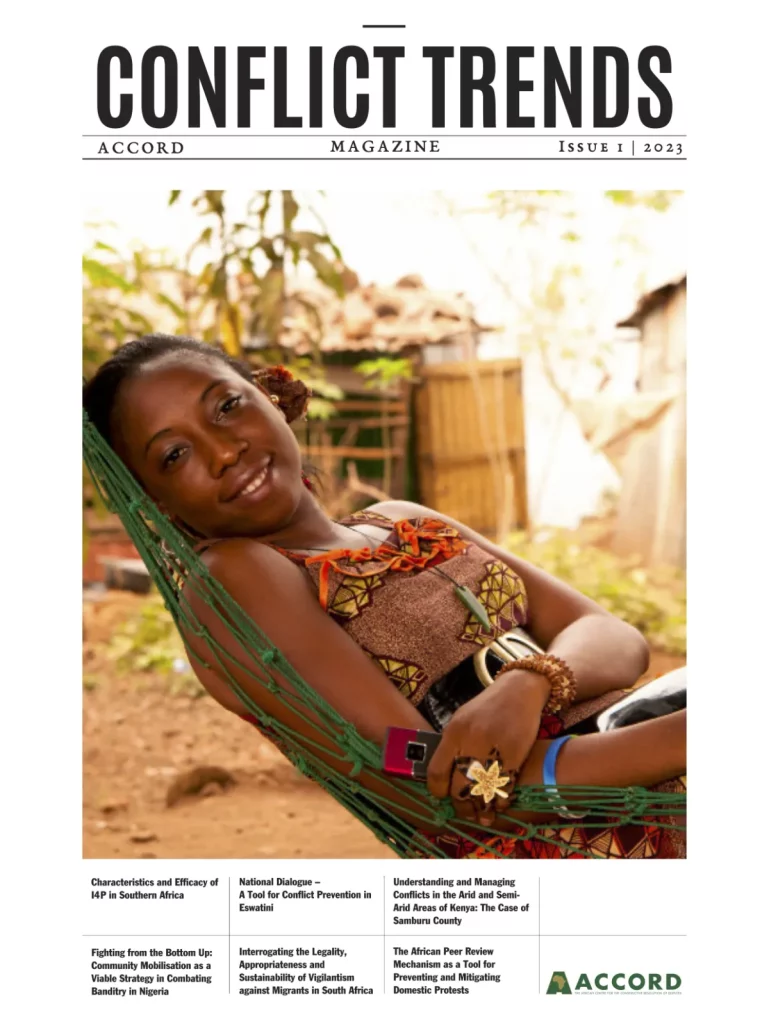Conflict Trends 2025/2
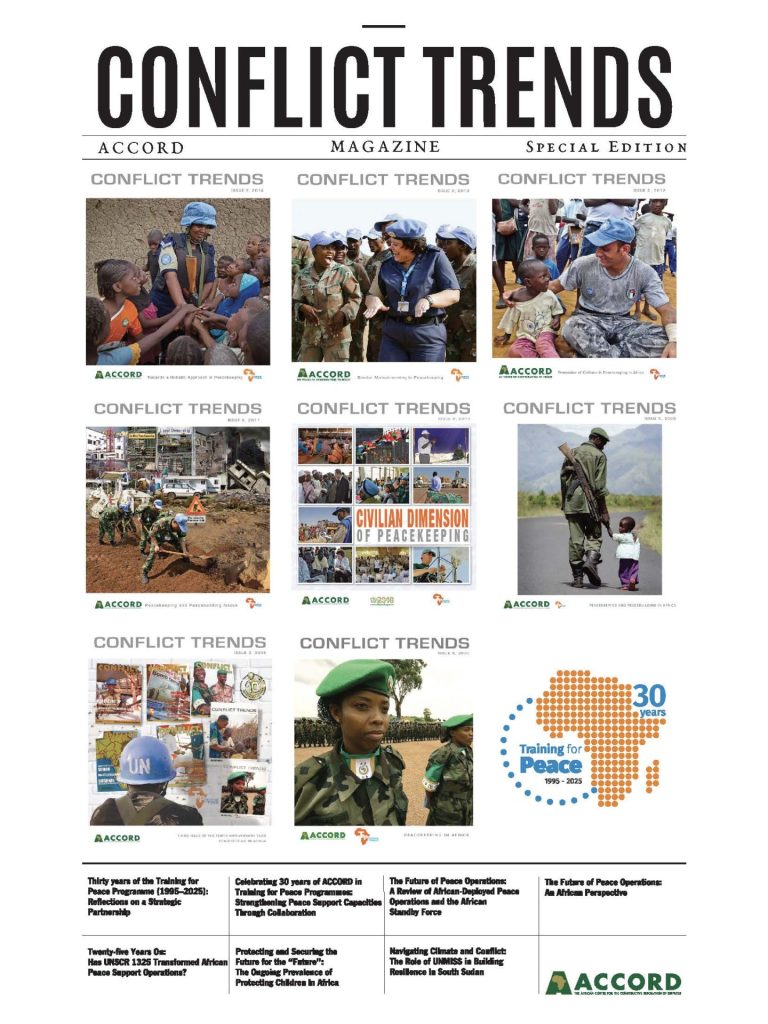
This is a Special Edition commemorating the 30th anniversary of the Training for Peace programme (TfP). Back in 1995, ACCORD became one of the founding organisations alongside the Norwegian Institute for International Affairs (NUPI), and the Institute for Security Studies (ISS). The main objectives of TfP have been to support the African Union (AU) by […]
Conflict Trends 2025/1
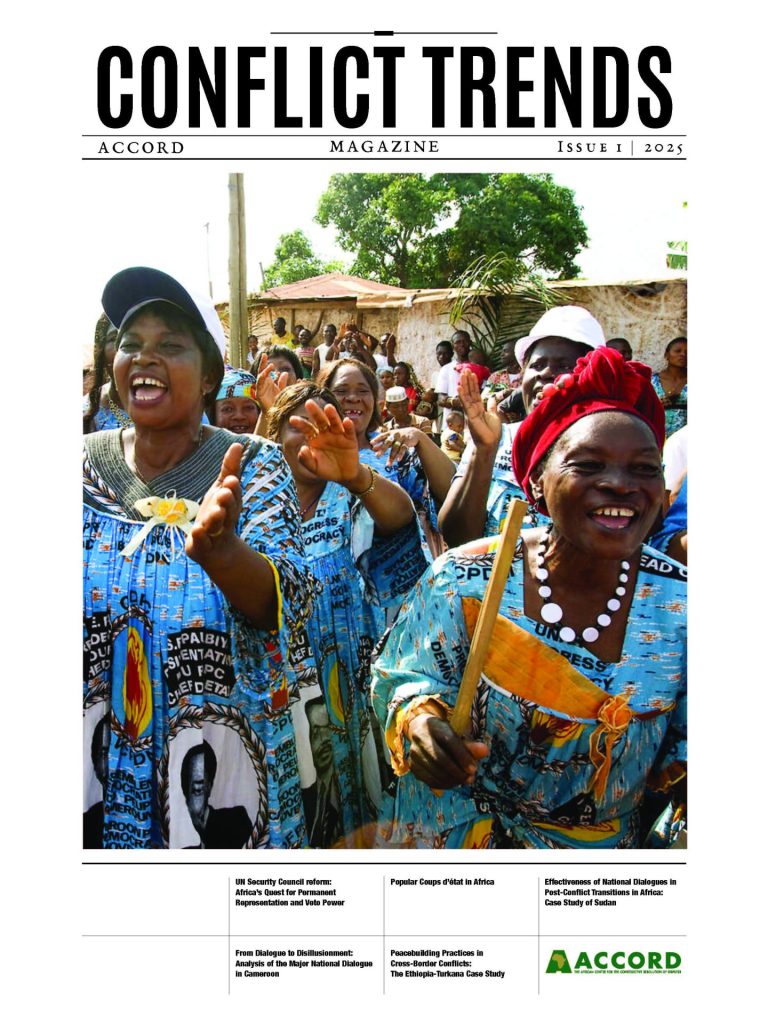
This edition of Conflict Trends begins with an article written by Abraham Ename Minko about United Nations Security Council (UNSC) reforms. The article discusses the reasons advanced by Africa for UN reforms and why it is proving difficult to exact any change to the current system. The Ezulwini Consensus, Africa’s common position on UN reform, […]
Conflict Trends 2024/4
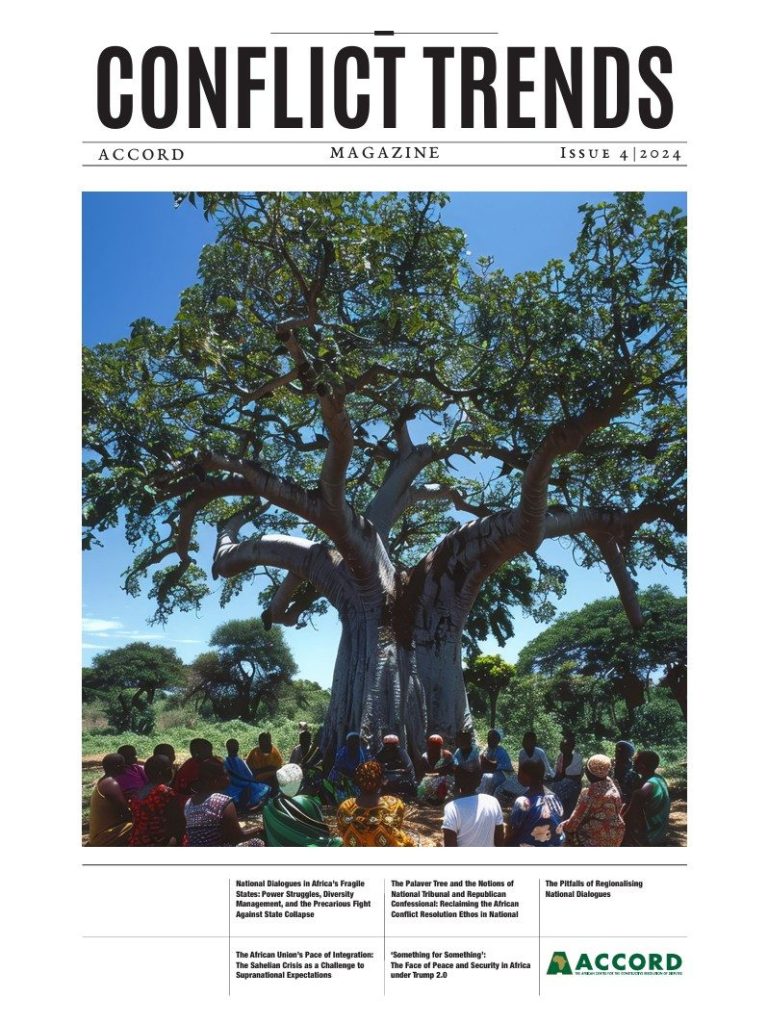
This edition of Conflict Trends begins with three articles focused on national dialogues in Africa. The first article, written by Distinct Obuzor Imaka and Tonye Marclint Ebiede, discusses national dialogues in the context of fragile states. Their article conceptualises national dialogues and highlights the successful examples that have taken place in Africa. However, many states […]
Conflict Trends 2024/3
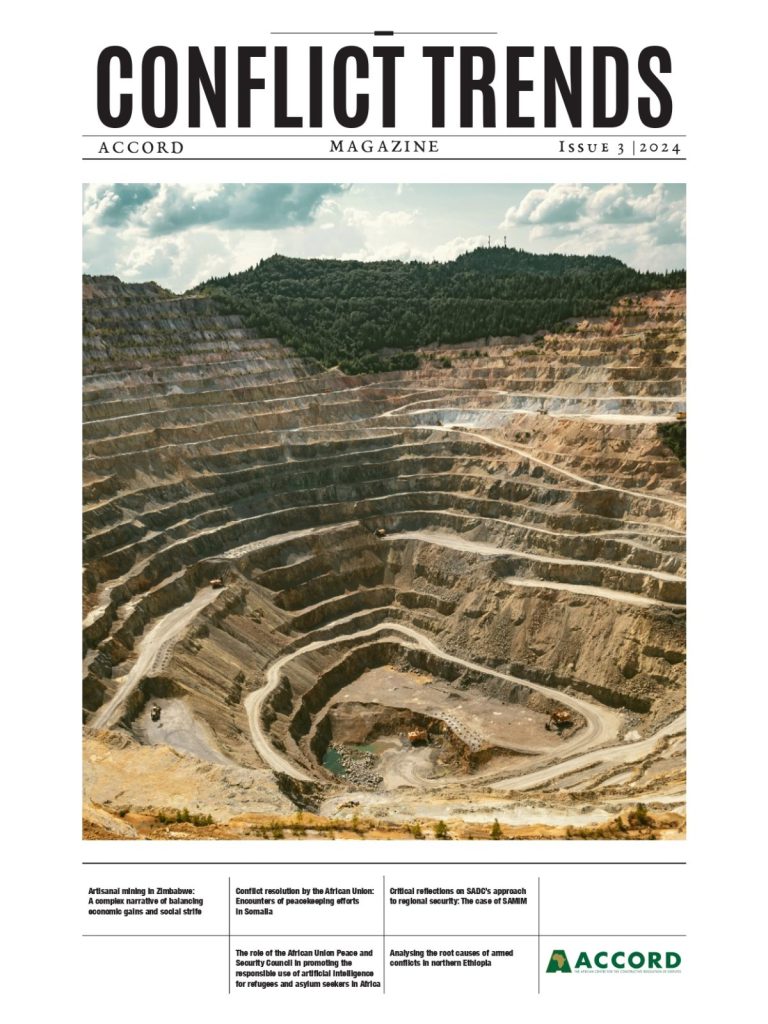
This edition of Conflict Trends begins with an article by Rumbidzaishe Matambo who writes about artisanal mining in Zimbabwe. It discusses the economic and social benefits of small scale artisanal mining in Zimbabwe, as it offers job opportunities and economic stimulation, particularly in rural areas. However, artisanal mining also has many disadvantages, such as environmental damage and […]
Conflict Trends 2024/2
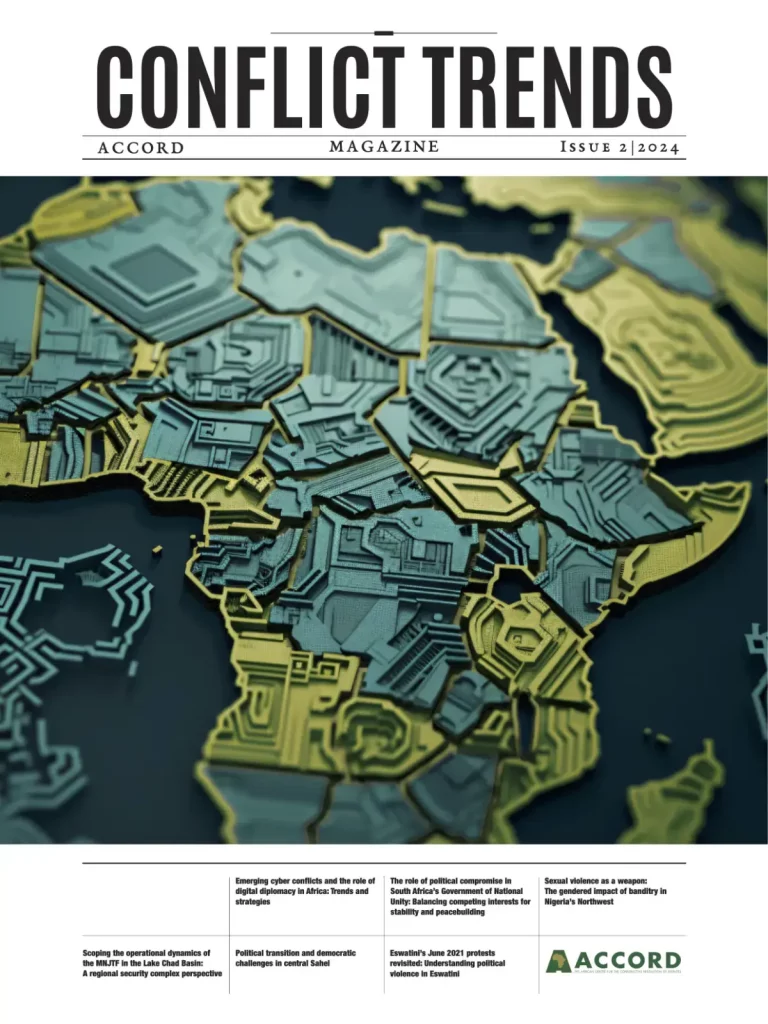
This edition of ACCORD’s Conflict Trends begins with an article by Abraham Ename Minko about one of the emerging challenges in Africa, which is cyber security. This article discusses how cyber conflicts such as cyber espionage and surveillance can affect various aspects of life in Africa. As discussed in the article, cyber activity, such as […]
Conflict Trends 2024/1
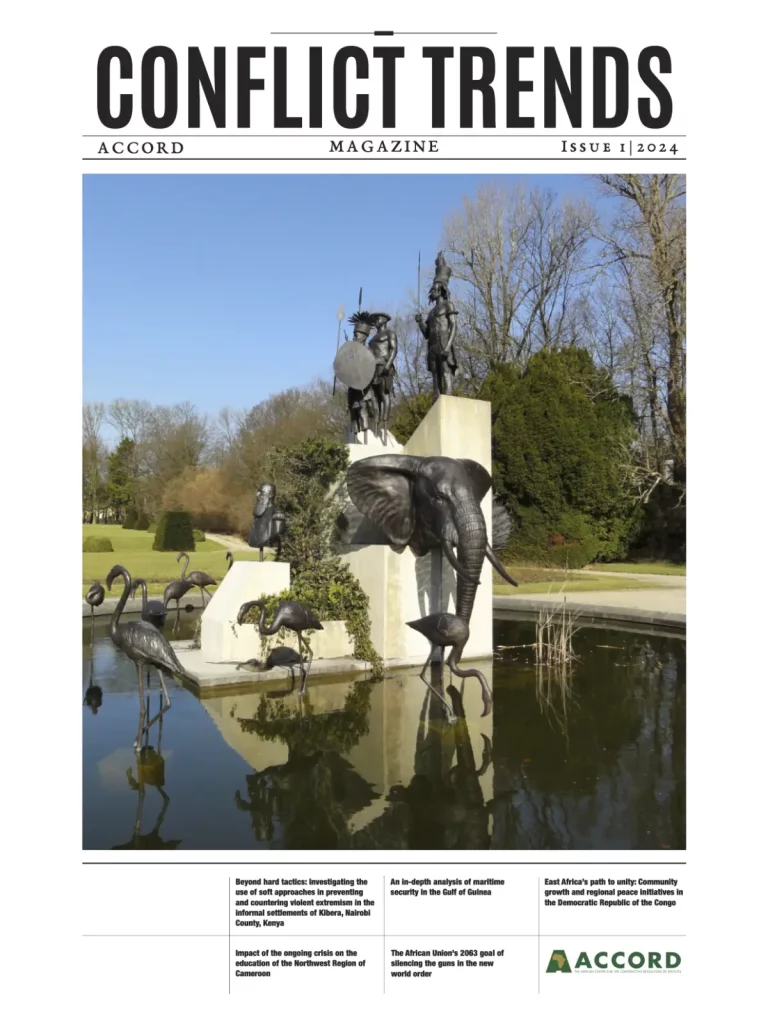
This edition of Conflict Trends begins with an article from Regina M. Mwendwa and Jescah A. Otieno who have written about the use of hard tactics in the informal settlements of Kibera, Nairobi County, Kenya. In their article, they discuss the rise of violent extremism in Kenya, and in particular, the Kibera informal settlements, the […]
Conflict Trends 2023/4
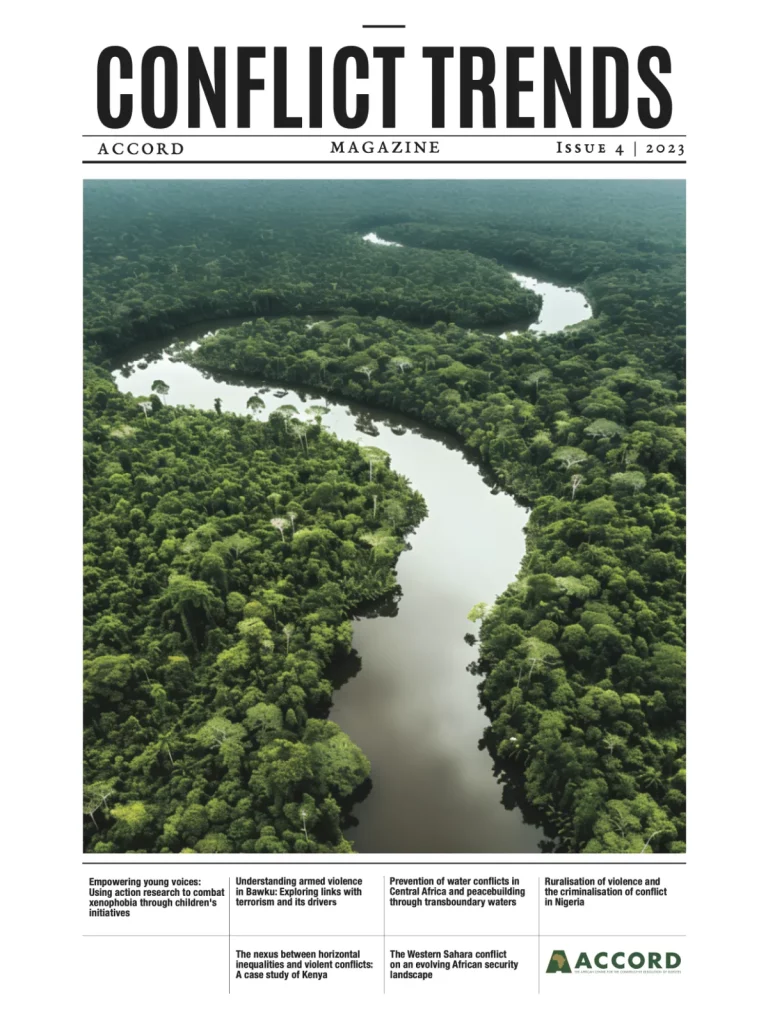
Xenophobia is an issue that South Africa has grappled with for a number of years and Ruth T. Nyamadzawo writes about xenophobia in South Africa and how best to address it. The article presents details of a study conducted on xenophobic sentiments amongst both local and migrant adolescents living in South Africa and how addressing […]
Conflict Trends 2023/3
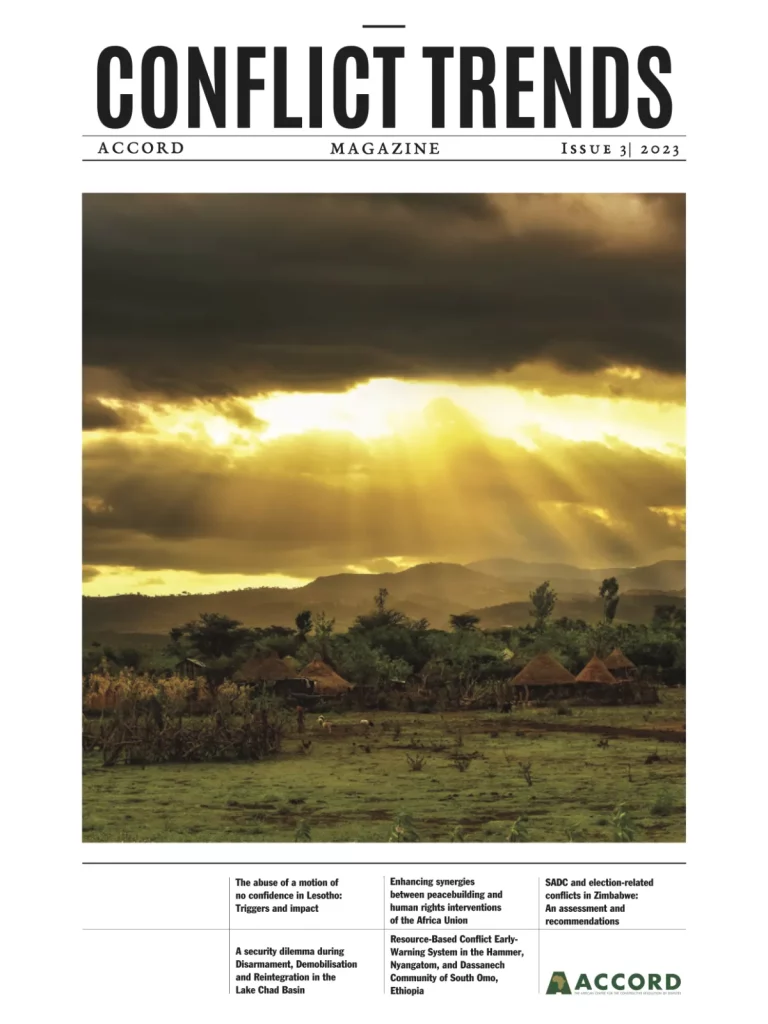
Conflict Trends 2023/2
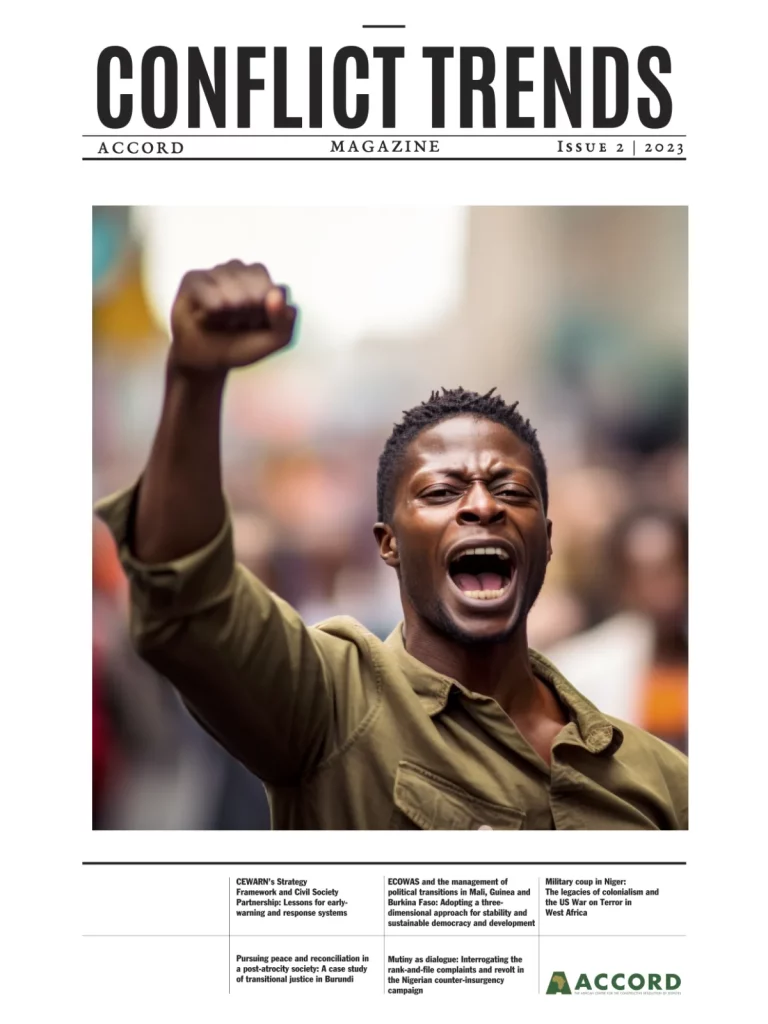
Conflict Trends 2023/1
